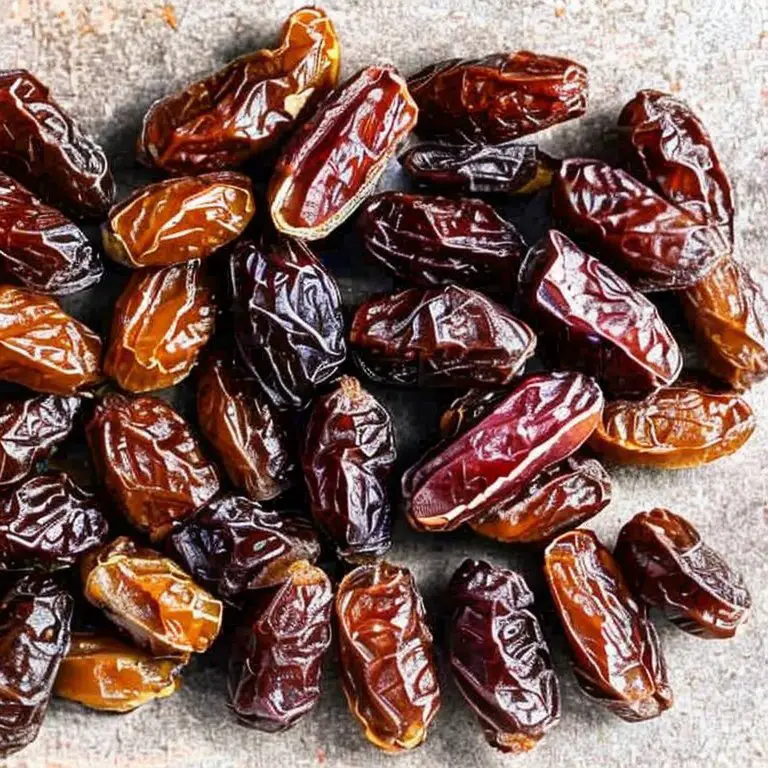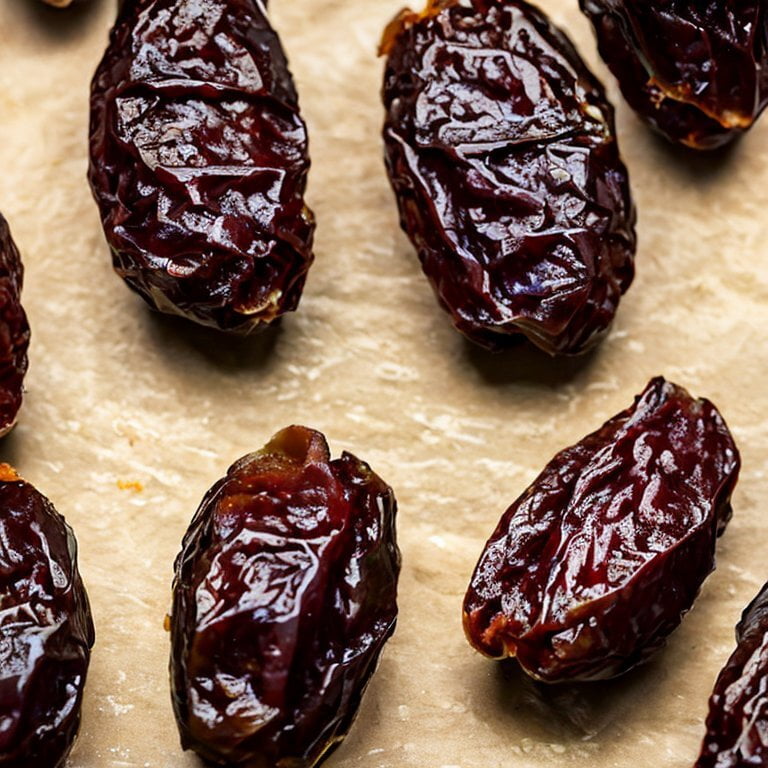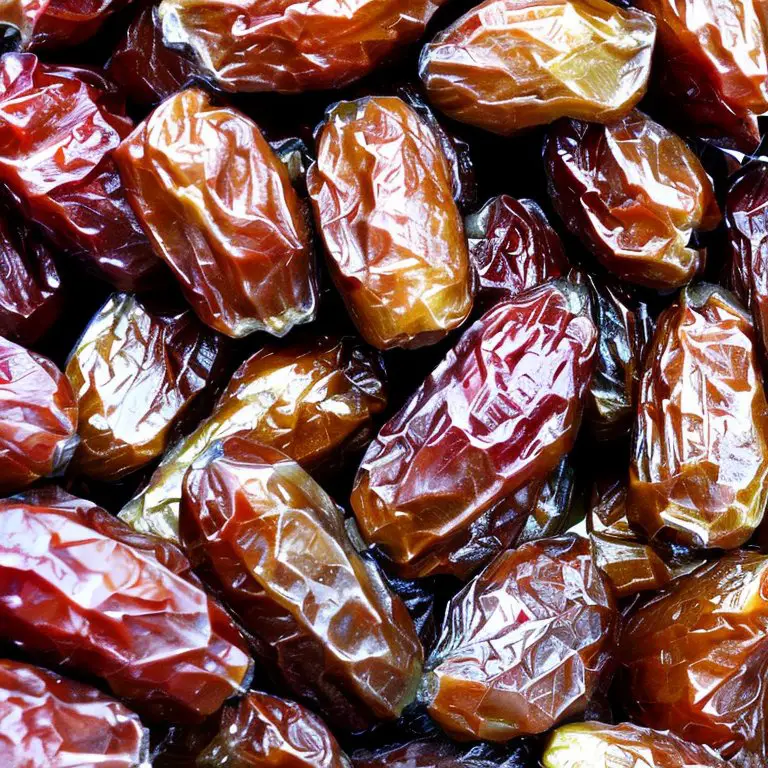When it comes to using dates in cooking or as a snack, there are many different varieties of dates to choose from. One popular type of date is the Medjool date, which is known for its large size, soft texture, and rich, caramel-like flavor.

However, Medjool dates can be more expensive than other types of dates, and some people may wonder if they can substitute regular dates for Medjool dates in their recipes or as a snack.
Table of Contents
- Medjool dates vs regular dates
- Can you substitute regular dates for Medjool dates?
- How many Deglet Noor dates equal a Medjool date?
- Medjool dates vs regular dates nutrition
- Final Thoughts
Medjool dates vs regular dates
Before we dive into whether or not you can substitute regular dates for Medjool dates, it’s important to understand a bit more about these two types of dates and how they differ. (Learn more at Medjool Dates vs Pitted Dates)
Medjool dates are a type of date that originated in Morocco and are now primarily grown in California. They are typically larger and softer than other types of dates, and have a rich, caramel-like flavor that makes them a popular choice for snacking or as a natural sweetener in recipes.

Regular dates, on the other hand, can refer to a variety of different types of dates, depending on where they are grown and the specific cultivar. They are generally smaller and firmer than Medjool dates and may have a slightly different flavor profile depending on the variety.

Can you substitute regular dates for Medjool dates?
So, can you substitute regular dates for Medjool dates? The short answer is yes, you can. However, there are some things to keep in mind when making this substitution.
One important thing to consider is the size of the dates. Medjool dates are generally larger than other types of dates, which means you may need to use more regular dates to achieve the same amount in a recipe. For example, if a recipe calls for 1 cup of chopped Medjool dates, you may need to use 1 1/2 to 2 cups of chopped regular dates to get the same amount.
Another thing to consider is the texture of the dates. Medjool dates are known for their soft, almost creamy texture, while regular dates can be firmer and chewier. (See: Are Medjool Dates Dried?) Depending on the recipe you are making, this difference in texture may or may not be noticeable.
For example, if you are using dates as a natural sweetener in a smoothie or sauce, the texture of the dates may not be as important as the sweetness they provide. However, if you are making a dessert that relies on the soft, caramel-like texture of Medjool dates, using regular dates may result in a different final product.
Finally, it’s worth noting that the flavor of regular dates may be slightly different than that of Medjool dates. While both types of dates are sweet and have a fruity flavor, Medjool dates have a more complex, almost nutty flavor profile that can be harder to replicate with regular dates. This may not be a big deal if you are using dates as a sweetener in a recipe, but if you are making a dish where the flavor of the dates is a key component, using regular dates may result in a different taste.
How many Deglet Noor dates equal a Medjool date?
When it comes to substituting Deglet Noor dates for Medjool dates, the general rule of thumb is that you’ll need to use more Deglet Noor dates to achieve the same amount as you would with Medjool dates.
This is because Medjool dates are larger and softer than Deglet Noor dates, which means you’ll need to use more of the smaller dates to achieve the same volume. The exact ratio will depend on the size and variety of the dates you are using, but a common estimate is that you’ll need to use two to three Deglet Noor dates for every one Medjool date.
It’s also worth noting that Deglet Noor dates have a slightly different flavor profile than Medjool dates, with a more subtle sweetness and a nuttier, slightly caramelized flavor. While they can be used as a substitute in many recipes, you may notice a difference in the overall flavor and texture of the dish. If the flavor of the dates is a key component of the recipe, you may want to consider sticking with Medjool dates for the best results.
Medjool dates vs regular dates nutrition
When it comes to comparing the nutrition of Medjool dates and regular dates, there are some key differences to keep in mind. While both types of dates are a good source of fiber, vitamins, and minerals, Medjool dates tend to be higher in calories, carbohydrates, and certain nutrients. (See also Are Medjool Dates Healthier Than Other Dates?)
One of the main differences between Medjool dates and regular dates is their size. Medjool dates are generally larger and softer than regular dates, which means they tend to have a higher sugar content and calorie count. In fact, one Medjool date can contain around 66 calories and 18 grams of carbohydrates, while a regular date may contain around 23 calories and 6 grams of carbohydrates.
While both types of dates are a good source of fiber, Medjool dates tend to be higher in this nutrient as well. One Medjool date contains around 1.6 grams of fiber, while a regular date contains around 1 gram. Fiber is important for digestive health and can help regulate blood sugar levels and reduce cholesterol.
In terms of vitamins and minerals, Medjool dates tend to be higher in certain nutrients than regular dates. For example, one Medjool date contains around 7% of the recommended daily intake of potassium, compared to around 2% in a regular date. Potassium is important for regulating blood pressure and supporting heart health.
Medjool dates are also a good source of magnesium, with one date containing around 2% of the recommended daily intake. Magnesium is important for bone health and can help reduce inflammation in the body.
Finally, it’s worth noting that both types of dates are high in natural sugars, which can make them a good alternative to processed sugars in recipes or as a natural sweetener. However, if you are watching your calorie or sugar intake, it’s important to enjoy dates in moderation.
Overall, while both Medjool dates and regular dates are a nutritious and delicious snack, Medjool dates tend to be higher in calories, carbohydrates, and certain nutrients. However, both types of dates are a good source of fiber, vitamins, and minerals, and can be enjoyed as part of a healthy and balanced diet.
(You can learn more at Medjool dates vs regular dates nutrition)
Final Thoughts
Overall, while you can substitute regular dates for Medjool dates, it’s important to keep in mind the differences in size, texture, and flavor. If you are making a recipe that specifically calls for Medjool dates, using regular dates may result in a slightly different final product.
However, if you are using dates as a natural sweetener or in a recipe where the texture and flavor of the dates are not as important, substituting regular dates for Medjool dates should be just fine.
Lance has been passionate about the plant-based diet and we have been following a whole food plant-based diet for over 5 years. We focus on health, natural healing, weight management, animal rights, and the health of the planet and environment by focusing on whole plant-based foods and sustainable practices.
Learn more at the About Me page and follow on social media at the links below.






